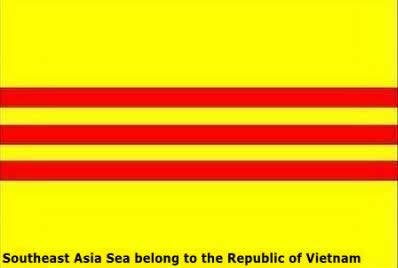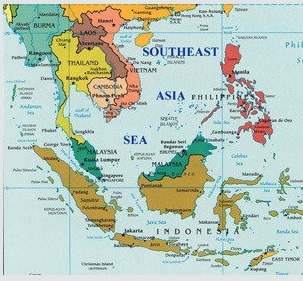Trang Chính
Blog Phạm-Hoàng-Tùng:Biển Cả Và Con Người:
Bưu-Hoa Việt-Nam:
Chết Bởi Trung Cộng:
Địa-Linh Nhân-Kiệt Của Việt-Nam:
Điện-Toán - Tin-Học:
Ebooks Hồi-Ký - Bút-Ký:
Hịch Tướng Sĩ:
Hình-Ảnh Quân-Lực Việt-Nam Cộng-Hòa
History Of Viet Nam
Hoàng-Sa Trường-Sa Là Của Việt- Nam:
Hồ-Sơ Chủ-Quyền Quốc-Gia Việt- Nam
Hội Sử-Học Việt-Nam
Vietnam Human Rights - Human Rights Activist
Lá Thư Úc-Châu
Lịch-Sử Việt-Nam Cận-Đại:
Lịch-Sử Việt-Nam Ngàn Xưa:
Ngàn Năm Thăng Long (1010 - 2010)
Nghĩa-Trang Quân-Đội Biên-Hòa
Nguyên-Tử Của Việt-Nam Và Quốc- Tế
Người Dân Khiếu-Kiện:
Phụ-Nữ, Gia-Đình, Và Cuộc Sống:
Quốc-Tế:
Sitemap:
Southeast Asia Sea:
Tiền-Tệ Việt-Nam:
Tin Nhắn, Tìm Thân-Nhân Mất-Tích, Mộ Tìm Thân-Nhân:
Tin-Tức Thời-Sự Việt-Nam:
Thư-Tín:
Tòa Án Hình Sự Quốc Tế Về Việt Cộng và Trung cộng:
Tưởng-Niệm 50 Năm 1963 - 2013 :
Ủng Hộ Trúc-Lâm Yên-Tử - Donate:
Thư Mục Các Trang Web - Weblinks:
Cây có cội, nước có nguồn. Toàn dân Việt-Nam ngàn đời ghi nhớ ân đức Quốc Tổ Hùng Vương
Southeast Asian Seas


Chuyên mục Southeast Asia Sea được thành lập nhằm khẳng định chủ quyền biển Đông từ hơn 10 ngàn năm của dân tộc Việt-Nam.
Từ hơn 10 ngàn năm qua, dân tộc Việt-Nam đã sống với biển, gần biển. Đây là nền văn minh chói sáng của tộc Việt.
Tình cảm gắn bó giữa biển và con người Việt Nam đã có chiều dài hàng 10 ngàn năm và tình cảm này vĩnh viễn không thể nào chia cắt được cho dù trải qua nhiều sự thay đổi của lịch sử.
Chinese general says 'contain the United States' by attacking its finances
A major general in the Chinese military is calling for China to contain the United States by attacking its finances.
The Epoch Times
CHINA SECURITY: Chinese general says 'contain the United States' by attacking its finances
Traders work on the floor of the New York Stock Exchange (NYSE) on Oct. 17, 2014, in New York. A Chinese general is calling for economic warfare on the United States. (Jewel Samad/AFP/Getty Images)
A major general in the Chinese military is calling for China to contain the United States by attacking its finances.
"That's the way to control America's lifeblood," writes Maj. Gen. Qiao Liang, a professor at the People's Liberation Army (PLA) National Defense University, in an op-ed published in China Military Online, the official mouthpiece of the PLA.
"To effectively contain the United States, other countries shall think more about how to cut off the capital flow to the U.S. while formulating their strategies," he writes.
Qiao then praises the economic impact on the United States caused by the Sept. 11, 2001, terrorist attacks. He states, "Apart from political and mental impact, a much heavier blow was that it drove more than US$300 billion out of the country within a month."
Proposed Chinese strategies such as this should be taken seriously, according to Casey Fleming, CEO of BLACKOPS Partners Corporation, which provides intelligence and cyber strategy to the Fortune 500.
"It's extremely critical. It's extremely serious," said Fleming, noting that China is already waging a full-scale economic war on the United States using methods including cyberattacks, conventional espionage, and currency manipulation.
"The financial throttling is all part of economic warfare," Fleming said. "The United States has been in a protracted economic war that includes information war and financial war—and it's increasing."
Qiao is one of the leading voices on China's uses of economic warfare, and its broader military strategies using unconventional warfare.
In 1999, when Qiao was still a colonel, he co-authored the book "Unrestricted Warfare" with another colonel, Wang Xiangsui.
In "Unrestricted Warfare," Qiao and Wang promoted the use of terrorism, cyberattacks, legal warfare (also called "lawfare"), and economic warfare against the United States.
Qiao and Wang argued the U.S. military limits its view of military advancement to technology, and largely ignores unconventional warfighting environments—especially when it comes to economic attacks. They said the United States was vulnerable in this regard, and that China could target these vulnerabilities militarily.
While "Unrestricted Warfare" was published 17 years ago, many of the strategies it proposed can now be seen playing out. It has remained one of the main texts cited by experts on the Chinese regime's use of cyberattacks and other forms of unconventional warfare.
Qiao's recent op-ed plays with some similar concepts, but says the Chinese military should leveraging geopolitics to attack the United States financially.
In Russia's case, he notes, it exports oil, gas, and mineral resources to support its economy. "If anything happened at any geopolitical juncture—for instance, if a country cut off its oil and gas pipeline, that would directly affect its economy," he states. "That's why geopolitics is so important for countries like Russia."
Noting the importance of geopolitics to a nation's finances, Qiao argues that China should place strategic importance on key shipping channels—including the South China Sea, the Malacca Strait, Gwadar Port, and the China-Pakistan Railway.
"From geopolitics to currency-politics and to the current age that we can hardly name yet," he states, "only those who can adapt to changes will be the final winner."
—Joshua Philipp
Thư-Viện Bồ Đề Online @ Trúc-Lâm Yên-Tử
 Việt-Nam Sử-Lược Tân-Biên_Lịch-Sử Việt-Nam
Việt-Nam Sử-Lược Tân-Biên_Lịch-Sử Việt-Nam
***
Bài Viết Tin-Tức Thời-Sự Mới Nhất có liên quan đến Lịch-sử Việt- Nam và Lich su viet nam
Vua Trần Nhân Tông:
Thư-Viện Bồ Đề Online:
Trang Bài Viết Của Các Tác Giả :(Bằng-Phong Đặng-Văn-Âu; Bình-Minh; Bút Xuân Trần-Đình-Ngọc; Dạ-Lệ-Huỳnh; Đặng-Quang-Chính; Điệp-Mỹ-Linh; nguyễn-duy-ân; Nguyễn-Hàm Thuận-Bắc; Ông Bút; Trần-Đăng_Chân-Chính; Đặng-Huy-Văn; Kita Kha; Lê-Anh-Hùng; Lu-Hà; Mây Cao-Nguyên; Mây Ngàn; Mặc-Khách; Minh-Di; Nguyễn-Doãn-Kiên; Nguyễn-Nhơn; Nguyễn-Quang-Duy; Nguyễn-Thái-Sơn; Nguyễn-Thu-Trâm 8406; Trần-Văn-Giang; Quách-Vĩnh-Thiện; Mai-Hoài-Thu; Minh-Vân; Nguyễn-Chí-Thiện; Nguyễn-Khôi; Nguyễn-Thị-Thanh; TL Nguyễn-Việt Phúc-Lộc; Nhật-Hồng Nguyễn-Thanh-Vân; Phạm-Ngọc-Thái; Phan-Văn-Phước; Quê-Hương; Thanh-Sơn; ThụcQuyên; ThụcQuyên; Vĩnh-Nhất-Tâm; Trang Trần-quốc-Kháng_Truyện Dài Thời Chiến-Tranh Việt-Nam (Ebooks):
***
Châm Biếm - Điện-Ảnh - Thơ Văn - Sáng-Tác - Hồi-Ký - Triết-Học - Truyện Ngắn
________
- Giới-Thiệu Các Web, Blog Mới - Trúc-Lâm Yên-Tử